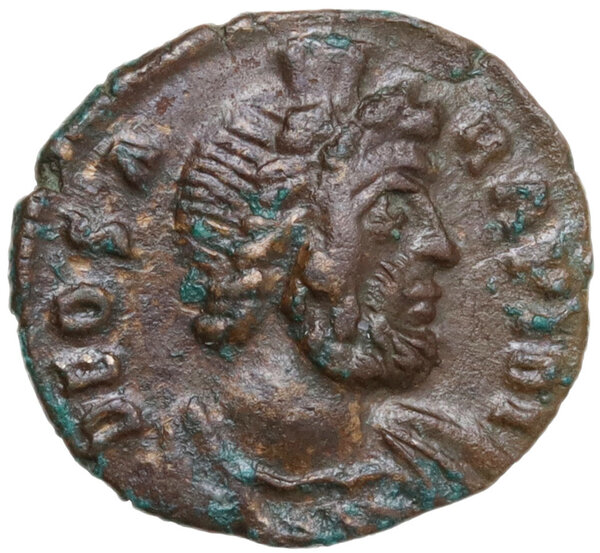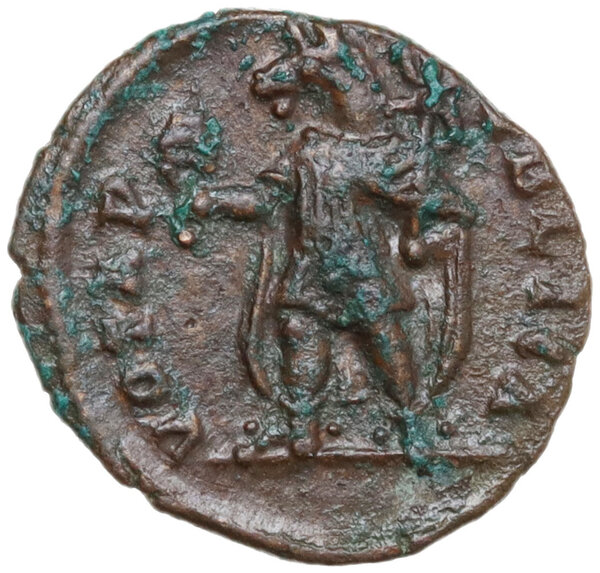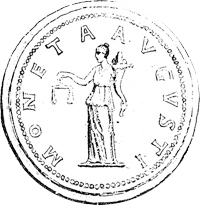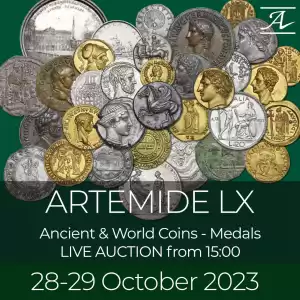

Festival of Isis. AE 14 mm, 4th Century AD. Obv. DEO SA-RAPIDI DEO SAR-APIDI, radiate and draped bust of Serapis right, wearing modius. Rev. VOTA PVBLICA, Anubis advancing left, holding sistrum and caduceus. Alföldi, Festival 126; Vagi 3388. 1.08 g. 14.00 mm. RR. Extremely rare and fascinating issue. Lovely brown patina with green deposits. EF. The Isis festival was a major celebration in Rome in the 3rd and 4th centuries, heralding the arrival of the ship of Isis (navigium Isidis) from Alexandria on 5 March. Besides Isis and Horus, other members of the Egyptian pantheon appear - Serapis, Anubis, Harpocrates, and Nilus. Such coins or tokens with imperial busts were first struck by Diocletian at Rome to mark the arrival of the ship, and the tradition continued through the 4th century; the latest imperial bust to appear is that of Valentinian II. Alföldi proposes that in the Middle Ages the festival associated with the Isis ship (also known as carrus navalis) became the car naval or carnival.


